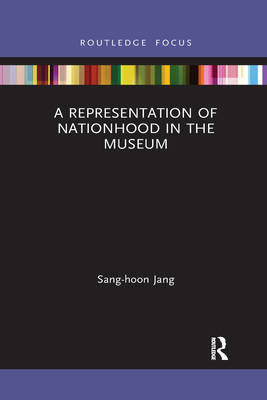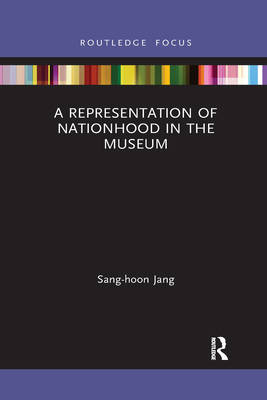
- Retrait gratuit dans votre magasin Club
- 7.000.000 titres dans notre catalogue
- Payer en toute sécurité
- Toujours un magasin près de chez vous
- Retrait gratuit dans votre magasin Club
- 7.000.0000 titres dans notre catalogue
- Payer en toute sécurité
- Toujours un magasin près de chez vous
Description
A Representation of Nationhood in the Museum examines how the National Museum of Korea, as a national repository of material culture and the state's premier exhibition facility, has shaped and been shaped by Korean nationalism.
Exploring the processes by which the museum has discovered and interpreted material culture, using concepts of ethnic nationalism in the historical and political contexts of South Korean society, the book analyses how this nationalist interpretation has regulated South Koreans' understanding of their material culture. Issues considered include: cultural and political relations with China; Japanese colonial rule, cultural imperialism and its legacy; the division of Korea since 1945; the Korean War and nation building since liberation in 1945; and domestic political upheavals, including military coups in 1961 and in 1979. Demonstrating that authoritarian regimes' emphasis on the promotion of national unity drove national museums to establish national identity through material culture, Jang argues that international political and diplomatic factors also affect the process of the formation of national identity in a specific political context.
Concerning itself with issues such as the relationship between politics and identity, museums and authoritarian regimes, this book should be essential reading for academics, researchers and postgraduate students in museum studies, nationalism studies, Asian studies and history departments.
Spécifications
Parties prenantes
- Auteur(s) :
- Editeur:
Contenu
- Nombre de pages :
- 140
- Langue:
- Anglais
- Collection :
Caractéristiques
- EAN:
- 9781032175522
- Date de parution :
- 30-09-21
- Format:
- Livre broché
- Format numérique:
- Trade paperback (VS)
- Dimensions :
- 140 mm x 216 mm
- Poids :
- 167 g

Les avis
Nous publions uniquement les avis qui respectent les conditions requises. Consultez nos conditions pour les avis.






